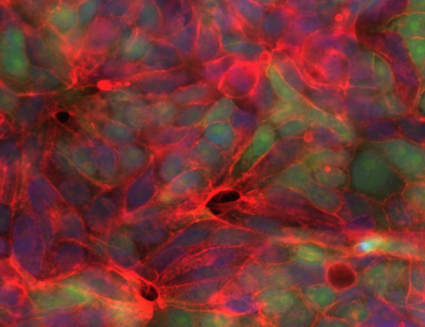
A physician scientist whose research focuses on an important but overlooked problem in cancer biology has been awarded one of three $8 million Snow Fellowships.
Announced today by the Snow Medical Research Foundation, the Fellowships are awarded to young, outstanding biomedical research leaders.
Dr Shom Goel is based at both the University of Melbourne and Peter MacCallum Cancer Centre and has an ambitious research plan to study therapy-induced senescence. His work as a breast cancer specialist has given him insight into where treatments are currently failing patients.
“Unfortunately, some cancer cells don’t die in response to common treatments such as chemotherapy or radiation therapy. Rather, they enter a state known as senescence and these senescent cells can fuel a cancer’s growth over time, ultimately threatening a patient’s life,” Dr Goel said.
“This very generous Fellowship will give me the time and resources to explore some of the most critical open questions about senescence in cancer. What makes one senescent cancer cell different from another? Do senescent cells explain why some cancers relapse years after we thought they were cured?”
Dr Goel and his team will build a suite of cutting-edge laboratory models and screening tools that take time to create, and which conventional funding mechanisms are not designed to support.
The Snow Fellowship funding supports researchers as they set up and operate a research laboratory and provides salaries for the Snow Fellow and post-doctoral researchers, PhD student scholarship top-ups, technical and laboratory management support, project funds and leadership development.
“The level of funding provided by the Snow Fellowship is unprecedented for Australian scientists. It will give me the time and security needed to ask big questions, ultimately reaping greater rewards,” Dr Goel said.
“The Fellowship will also attract a diverse, world-class team to my lab and within eight years, I am confident we will have discovered some of the first ‘senotherapies’ – medicines that specifically target senescent cells. We will also be very well positioned to drive the clinical development of those therapies here in Australia.”
Professor James McCluskey, Deputy Vice-Chancellor (Research) said that science is all about testing ideas.
“Scientists need a runway and need time to take risks and to experience failure and success. This Fellowship gives early career researchers like Dr Shom Goel time to test ideas and help solve complex problems,” he said.
“The University of Melbourne congratulates Dr Goel on this significant Fellowship and we look forward to witnessing his remarkable research that will lead to new therapies to improve clinical care. Such generosity from the Snow Medical Foundation is providing once in a lifetime opportunities for academic and personal growth.”
Dr Goel also congratulates Snow Fellows, Dr Melanie Eckersley-Maslin from the Peter MacCallum Cancer Centre, and Associate Professor Marina Pajic from the Garvan institute of Medical Research, Sydney.
“This Snow Fellowship will allow each of us to mentor the next generation of Australian researchers and support us as we strive to make long-lasting contributions to science and health, leadership and community.”
This article was republished from The University of Melbourne. Read the original article here.
